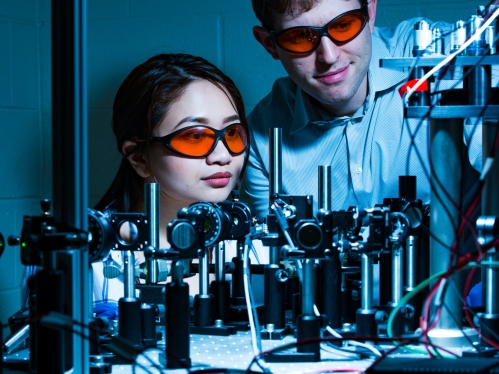
Mechanical Engineering
The Department of Mechanical Engineering at Rutgers was founded in 1908 with a focus on driving the country’s industrial growth. Today, with more than 30 full-time faculty members, the Mechanical and Aerospace Engineering Department educates more than 700 undergraduate and 180 graduate students. Excellence in both teaching, research, and service is the top priority for our faculty.
Program Overview
For over a century, the Department of Mechanical Engineering has fueled innovation and growth in a wide range of industries, including automotive, aerospace, robotics, energy generation, advanced manufacturing, naval, materials development, nanostructures, fluid interactions, and many more.
A program of mathematical, scientific, and technical knowledge, coupled with opportunities for research, prepares students for professional success in industry, government, and academia.
Our Industry Advisory Board of leaders from companies and government agencies such as ExxonMobil, Hoffmann-LaRoche, NASA, and Lockheed Martin supports our research and career development initiatives.

Degrees Offered and Curricular Options
The Department of Mechanical Engineering offers the following degree options:
- Bachelor of Science Degree
- Options:
- Aerospace Concentration
- Energy Systems Concentration
- Flexible Curriculum
- Options:
- Bachelor of Science/ Master of Science Dual Degree
- Bachelor of Science/Master of Engineering Dual Degree
- Master of Science Degree
- Master of Engineering Degree
- Online Master of Engineering Degree in Mechanical and Aerospace Engineering
- Doctoral Degree

Career Paths
- Design
- Research
- Manufacturing
- Automation
- Automobiles and aircraft
- Electric power generation plants
- Medical products
- Consumer products

Meet Allison Chen
"There are so many staff and faculty members who care about the students and who will spend every free moment helping a student until they feel they have succeeded.”


The Future Must Be Built